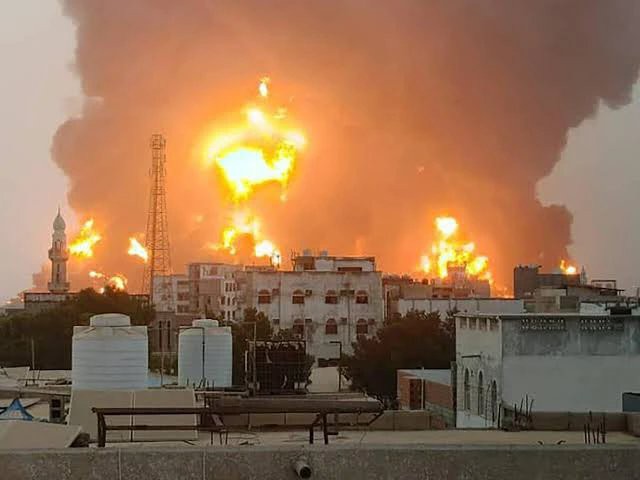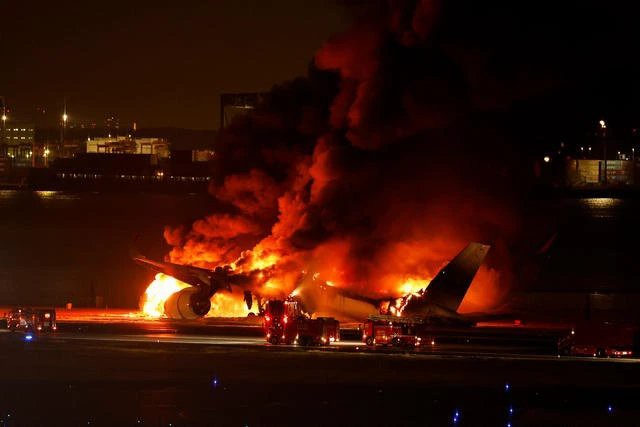Security
Yemeni media reports Israeli strikes in port city of Hodeida
DDM News

Reports from Yemeni media claim that Israeli warplanes conducted overnight airstrikes on the key port city of Hodeida.
The Times of Israel relayed the information to Diaspora digital media (DDM) though the Israeli Defense Forces (IDF) have not issued any official confirmation.
At the time of reporting, no formal statement has come from Israeli military authorities regarding the alleged operation.
The incident reportedly followed a public warning by the Israeli military, suggesting possible evacuations at strategic Red Sea ports.
Those warnings included Hodeida and two other ports along Yemen’s western coastline.
This development hints at a potential shift in Israel’s military posture in the Red Sea, a region fraught with increasing tension.
Hodeida remains Yemen’s principal maritime hub, critical for the delivery of humanitarian aid and international commerce.
The port city is currently under the control of the Iran-backed Houthi movement, which is central to Yemen’s prolonged conflict.
The Houthis have repeatedly been accused of launching attacks on commercial shipping routes in the Red Sea.
Israel blames these maritime assaults on Houthi fighters allegedly acting in coordination with Tehran.
Witnesses from the ground have reported explosions and visible damage in areas close to the Hodeida port.
However, the full extent of the airstrikes, including specific targets or damage assessment, remains unclear.
As of now, no casualties have been confirmed from the suspected air raids.
International humanitarian agencies, many of which operate in and through Hodeida, have not yet commented on the situation.
There is concern that the reported strikes may impact aid delivery routes crucial to millions of displaced Yemenis.
Israel has long categorized the Houthi movement as part of a wider “Axis of Resistance” backed by Iran.
This axis, according to Israeli officials, includes Hezbollah in Lebanon and various militias in Syria and Iraq.
Military analysts suggest that the IDF’s previous evacuation warnings were intended to minimize civilian harm.
Such warnings may also have been a way to broadcast Israel’s intention to target Houthi-linked infrastructure.
Nonetheless, with no Israeli confirmation, the precise motivations behind the reported strikes remain speculative.
The alleged airstrikes come as part of broader regional instability affecting trade, security, and diplomatic relations.
Over recent months, the Red Sea has become a volatile zone due to maritime confrontations and regional rivalries.
Yemen’s civil war, now in its tenth year, continues to draw in foreign actors on both sides of the conflict.
The Saudi-led coalition, which supports Yemen’s internationally recognized government, has accused the Houthis of endangering regional stability.
Meanwhile, the Houthis claim to be resisting foreign occupation and Western-backed aggression.
The strategic importance of Hodeida makes it a focal point in both humanitarian and military considerations.
It is one of the few lifelines for food, fuel, and medical supplies entering northern Yemen.
Any military action near or within Hodeida risks exacerbating the already dire humanitarian crisis.
The United Nations has repeatedly stressed the need to safeguard Yemen’s civilian infrastructure from conflict-related damage.
While this latest incident is yet to be independently verified, it adds another layer of complexity to the conflict.
If confirmed, Israeli involvement in Yemen would mark a significant escalation of its regional security doctrine.
Such a move could further strain relations between Israel and Iran, as well as complicate U.S. diplomacy in the region.
Global powers continue to monitor developments closely, wary of spillover effects in an already unstable Middle East.
The international community has consistently called for a political solution to Yemen’s conflict, but progress remains slow.
As the situation evolves, questions remain over the strategic goals of Israel in the Red Sea and its long-term regional aims.
DDM will continue to follow this developing story and provide updates as more information becomes available.
For Diaspora Digital Media Updates click on Whatsapp, or Telegram. For eyewitness accounts/ reports/ articles, write to: citizenreports@diasporadigitalmedia.com. Follow us on X (Fomerly Twitter) or Facebook













